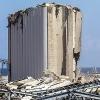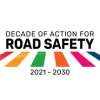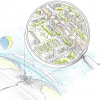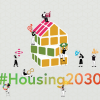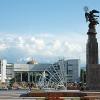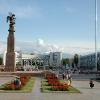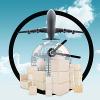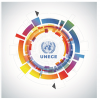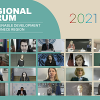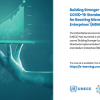Press Releases
Displaying Results 1 - 25 of 75
SPECA countries have experienced the effects of climate change and the COVID-19 pandemic on key aspects of economic development and cooperation, with negative consequences for sustainable development. COVID-19 related restrictions and border closures caused serious disruption to supply chains and
The Beirut port explosion in August 2020, caused by fire spreading across a storage area detonating a large amount of ammonium nitrate (AN), resulted in 300 deaths and 6,500 injuries, the displacement of about 300,000 people and severe damage to the port and city, including healthcare facilities
The launch of the Decade of Action for Road Safety 2021-2030 sets the ambitious target of preventing at least 50% of road traffic deaths and injuries by 2030. To realize this vision, UNECE partnered with WHO and its sister UN Regional Commissions to develop a Global Plan for the Decade of Action,
The Bureau of the Conference of European Statisticians (CES), UNECE’s statistical decision-making body, has released new guidance for measuring the impact of the Covid-19 pandemic on women and men.
From the moment that countries began imposing restrictions in a bid to flatten the curve of the
Humanity is facing not one but three intertwined crises: the COVID-19 pandemic, climate change, and a lack of adequate and affordable housing. Each of these three emergencies has the potential to compound the multidimensional impacts of the others in health, social cohesion, environmental integrity
Approximately 50 million people in the UNECE region live in inadequate housing conditions. In the 21st century, the governance, land and finance systems that influence the delivery and consumption of housing have been beset by numerous crises. Emanating from climate change, unguided investment
The United Nations has released a first version of a Handbook on Provisions and Options for Trade in Times of Crisis and Pandemic. Work on the Handbook was initiated by ESCAP, UNCTAD and other UN Regional Commissions after realizing that the hundreds of regional trade agreements in place provided
The COVID-19 pandemic has had a multi-dimensional effect on the UNECE region, causing the worst economic contraction in decades. Cities and urban areas, with their high population density and interconnectivity, were particularly vulnerable and encountered major disruptions. The pandemic impacted
Habtamu Zerihun is a 38-year old father to three daughters, aged 4, 6 and 12 years. Habtamu used to be a construction worker in and around Addis Ababa, until he was hit by a pickup on his walk to work. The pickup driver was under the influence of stimulant drugs and there were no adequate
Serbia is undergoing extensive reforms to consolidate a competitive market-based economy. The Government considers trade, along with investment, as an essential element to achieving structural transformation and inclusive growth. Reforms accord priority to harmonizing non-tariff measures.
As part
Amidst the COVID-19 pandemic, the importance of efficient trade processes has become clear as a means to allow for fast and safe movement of products, including bringing the life-saving medicines and food products to people, and to reduce the economic impacts of the crisis. In the Kyrgyz Republic,
Despite decades of discussions on the challenges and intersections between gender and transport, progress has been slow in implementing a gender perspective in transport policies. This has been problematic, for example, in urban planning which fails to recognise the different travel patterns
The COVID-19 pandemic spread around the world at lightning speed, devastating cities and communities and prompting a lockdown. The lockdown period also provided some respite for nature, resulting in memorable sights of ‘nature unlocked’ in our urban habitats.
To immortalize such sights and to
Ghana’s transboundary river basins, namely the Volta River basin (shared with Benin, Burkina Faso, Côte d’Ivoire, Mali and Togo – home to over 23 million people, with a population projected to more than double by 2050), Bia and Tano Rivers (shared with Côte d’Ivoire) and Todzie-Aka basin (shared
Today, European countries adopted the Vienna Declaration to spur the transformation towards clean, safe, healthy and inclusive transport and mobility, with a strong focus on promoting cycling across the pan-European region.
The Vienna Declaration was signed at the end of the Fifth High-level
The trade disruptions caused by the COVID-19 pandemic shook the Kyrgyz economy, which fell by 8.6 per cent in 2020 - for the first time in 26 years, according to the National Statistics Committee of the Kyrgyz Republic. As the country continues its efforts to “build back better”, it is imperative
In the framework of its fifth International PPP Forum (22-26 April 2021), UNECE organised a competition to showcase the best People-first PPP projects contributing to 'Build Back Better' from Covid-19.
Projects needed to address the following issues: stakeholder and community empowerment; poverty
The safety, security, efficiency, and resiliency of supply chains will benefit from air cargo digitalization, supported by standards developed at UNECE’s UN Centre for Trade Facilitation and Electronic Business (UN/CEFACT).
Public health concerns over COVID-19 are a new driving force behind
Since 2018, UNECE has been assisting Montenegro in the implementation of the recommendations from the third Environmental Performance Review (EPR) carried out in 2015.
Since the beginning of the COVID-19 pandemic, activities have been adapted, with funds being redeployed to support the
The extraction of raw materials worldwide has more than doubled since 1990 and could double again by 2060, fuelling environmental degradation and increased vulnerability to climate change. As major users and producers of natural resources, 56 countries of the UNECE region, spanning from North
Recognizing the vital importance of mobility and connectivity for sustainable economic development and taking stock of key challenges, UNECE has consolidated its work in this cross-cutting area to help countries leverage its tools to steer recovery efforts towards the Sustainable Development Goals
Countries of the Pan-European region can seize the COVID-19 recovery as a turning point for green and healthy transport and mobility as a foundation to build a better future for all, urges a UN Task Force.
Bringing together over 50 experts from member States, international institutions, academia
How can the Sustainable Development Goals (SDGs) guide us to recover better? At the 2021 Regional Forum, more than 1,400 key stakeholders connected virtually during 7 days of action for the Sustainable Development Goals (SDGs). From 10-18 March 2021, changemakers from all parts of the UNECE region
Every crisis contains the seeds of opportunity and growth, and the COVID-19 pandemic is no different. International standards provide powerful tools for bolstering economic resilience, while enabling enterprises to improve their productive capacity. Given their extensive coverage of production
Cities are growing fast. Half the world’s population already lives in urban areas and another 2.5 billion are expected to be living in cities by 2050. In 2015, the international community set the goal of making cities “inclusive, safe, resilient and sustainable” by 2030 (Sustainable Development



